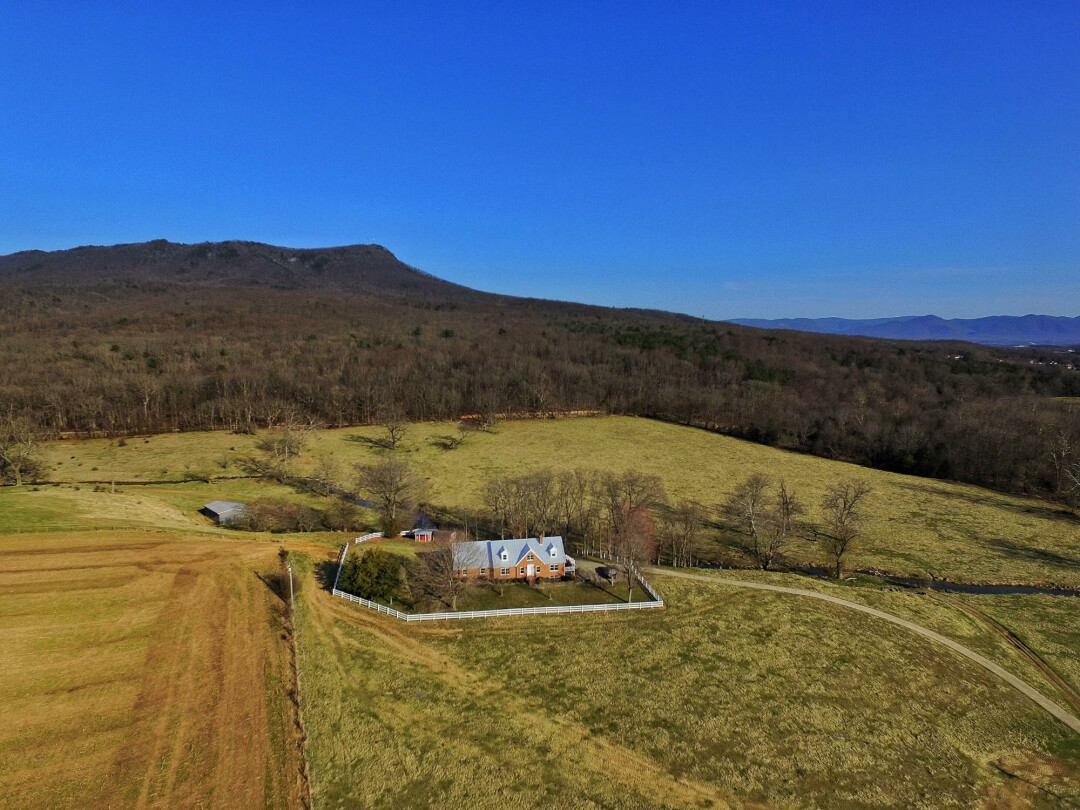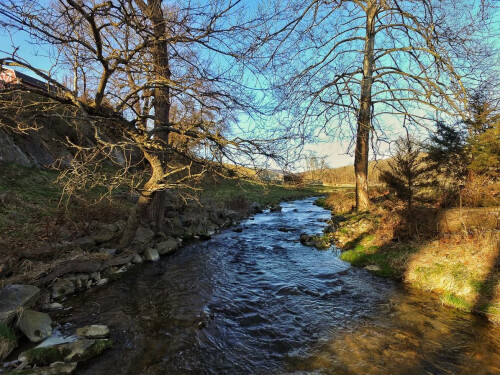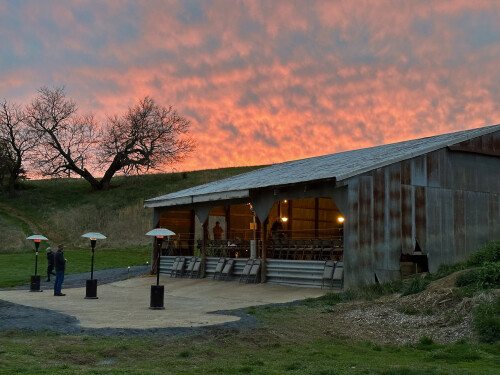
Grace and peace to you in Christ! I pray each of us is on heightened alert to the tender presence of the Lord in this season of holy Lent.
The goal of each Out of the Ordinary is to present an encouraging story about a church in the DCOH that is doing effective, creative Gospel ministry within its mission context. I pray each example will spark gratitude for what God is doing and stir up similar “Gospel creativity” around the DCOH. This effort has been a joyful experiment for me, a hope for “spurring each other on to love and good deeds” (Heb 10:24).
“Within its mission context” is a particularly apt way to describe the ministry of Church of the Lamb in East Rockingham County, VA. The church was planted about 15 miles east of Harrisonburg through Church of the Incarnation and Rector Aubrey Spears. Planter Kevin Whitfield, along with Katie and their growing family, has been used by God to grow the original launch team into a stable church amidst a patchwork of rolling farms, vineyards, and small villages that lie in the shadow of the Shenandoah Mountains. If you’re thinking, “That sounds idyllic,” you’re right! But never mistake “idyllic” for “idle.” Lamb is vibrantly living into its mission context as well as any church in the DCOH!
First, there is the land and facilities. God led Kevin and his lay leaders to buy a 31-acre farm, bisected by a beautiful stream. The original brick farmhouse has been remodeled into a rectory, office, and children’s Sunday morning space. The garage was repurposed for storage. The open-ended metal shed downhill from the rectory, bordering the stream, forms a rustic but surprisingly lovely nave that – at least for now – meets the needs of the congregation.

More so, it expresses the adventurous character of the congregation. Worshippers are constantly aware of “the land,” the environment, the natural beauty, the weather. Rather than resisting elements that some would see as obstacles (cold, rain, heat) the people of Lamb inhabit them. Portable heaters and blankets come out in winter. The footbridge and old tractor path from the parking area to the worship space connects to a two-mile path around the property. The path includes a permanent Stations of the Cross. Cows from a local farmer graze on a hill “over yonder.” Why not lease land at a good rate and recoup some revenue? The beginnings of an orchard, the dream of a vineyard, plans for a cemetery and a public market, are all in the works. The land is shaping mission and ministry.
When I visited, I had just finished a powerful book by Beldon Lane, The Solace of Fierce Landscapes. In the spirit of Wendell Berry, Lane speaks about the way physical landscape is meant to shape our souls. I saw that in spades at Lamb and wondered, “What could it mean for those who live in more urban settings, or structured settings, to be shaped by the contours and beauties of our landscapes? Can we leverage our physical world for Gospel good, even when traffic is thick, apartment buildings jam city blocks, and light pollution dims the stars?” Can we see our landscape, not as obstacles but as springboards for a beautifully shaped Gospel life?
For many who don’t live in an obviously beautiful natural landscape, we tend to think that Gospel ministry “sits on top of our place.” It “happens in spite of, or in defiance of, our setting.” But what if the message of the Gospel and the discipled life of believers are meant to take on contours of our cultural and physical landscapes, and to render the everyday into the beautiful? Can our worship and discipleship grow naturally “out of the ground where we live?” “Surely the Lord is in this place,” if we have eyes to see. If we learn how our landscapes shape souls, maybe we can begin to imagine and pray about how the Holy Spirit could speak the Gospel more deeply to our communities in ways that echo and enhance the spiritual landscapes we inhabit.
The landscape of Lamb is being powerfully stewarded and gardened into mission and ministry. The stewards and gardeners are the people of Lamb. In general, they love where they live. They reflect the values and practices of generations of farmers and everyday artisans. But they also have embraced Christian values which transcend all landscapes: hospitality, generosity, and generational formation.
Welcoming people, and welcoming people into homes, are SOP at Lamb. Home-based hospitality stands out – something many cultures have long-since forgotten but which God’s people can always resurrect. Potlucks happen with amazing frequency. Guests pitch in to move chairs and set tables on the spot. Kids roll in and out of the space. One established member owns a great farm-to-table restaurant, but interestingly, her restaurant only prepares food for takeout or delivery, to be eaten around tables in homes.

Generosity marks the church. I confirmed a dozen adults. If my memory serves correct, five are involved in ministry to street people or people struggling with deep mental health issues. In hearing their stories, I was struck by how some of these relationships have continued for years and have included many visits to jail and sessions in court. Yet not a note of resentment crept into the narratives. It was weird, until I heard underneath the stories a current of genuine love for people, created in God’s image, however marred it may be. There was a delight that God had enabled them to generously invest time and money for years in someone for whom Christ died.
Perhaps the most unusual thing I saw, however, was the commitment to generational formation. Remarkably, it was older men, some retired, that are leading the way of mentoring and discipling teenagers. Several skilled weekend carpenters are teaching woodworking classes to teenagers. An onsite coffee roasting team includes teens. A large metal shed for woodworking classes, roasting coffee, and other artisanal work is in the short-term strategic plan. When the orchard and vineyard go in, teens will be on the teams, learning practical gardening skills. “Passing it on to the next generation” is woven into the farmland of Rockingham County; it is also flourishing in the church which inhabits that landscape.
Servus servorum Dei,
Bishop Steve
